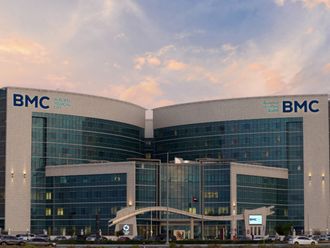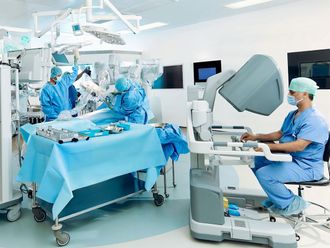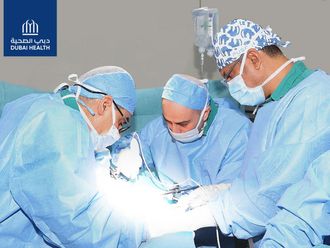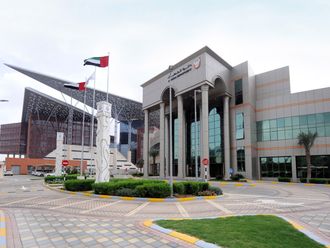Dubai: Diseases of the gastro-intestinal tract (GI) are as common as heart disease and affects every two out of 10 people in the UAE, doctors have said. Stress can further aggravate stomach diseases such as irritable bowel syndrome (IBS), can affect gut function by inducing excessive secretions, cause diarrhoea and enhance the sensation of pain, said Dr William Paterson, chair, division of gastroenterology, Queen’s University in Canada.
He was speaking to Gulf News on the sidelines of the Emirates Gastroenterology and Hepatology Congress that opened in Dubai yesterday at the Convention Centre. Around 1,000 delegates are attending the congress to discuss the growing disease of the stomach.
He said IBS is one of the common disorders and fast food alone cannot be blamed. “It is due to some underlying symptoms that we do not know, but stress can aggravate it,” he said.
Dr Mohammed Al Za’abi, consultant gastroenterologist and chair of the scientific committee of the Congress, said fatty liver disease is also very common and is affecting the young.
“Parents need to take responsibility now (to curtail it) as children will suffer its consequences in the future,” he said, pointing to the high number of obese children in the UAE.
“There is not one factor responsible for this disease; it is changes in our lifestyle and the fatty food we eat. We need to educate the children now,” he said. IBS is not the only consequence of eating wrong, but can trickle down to other problems such as acid reflux and pancreatic disease, he added.
The doctor said there was also a need to communicate with decision-makers to regulate entry of certain types of foods and herbs in the market that can affect the well-being of the gastro-intestinal tract and cause liver disease.
“Obesity is due to eating too many calories and including a high-fat diet. That leads to accumulation of fat in liver. It may not damage the liver, but when inflammation develops, then you end up with serious consequences, such as liver cirrhosis and liver failure,” said Dr Al Za’abi.
He said that when you have a large section of the population that is obese or overweight, then the number of people with fatty liver disease will be equally high.
The gastroenterologist said initially there are no symptoms of the disease, then it aggravates the risk of diabetes and hypertension and also heart disease.
The congress will address new technologies available to deal with GI disease and new treatments that have been approved by the US Food and Drugs Administration (FDA).
Dr Duha Shaheen, an endocrinologist at Dubai Healthcare City, said there is a need for the food industry to come up with solutions to the obesity problem in the UAE.
“In the US it is mandatory for restaurants to list the nutritional and caloric content and serving size,” she said. But she said before that can be done here, people need to be educated what to look for in their food.
She said FDA has approved two new medications for obesity.
“One of them helps reduce weight by 10 per cent,” she said. But she noted there are still side-effects to these drugs.
Noting that UAE is the third fattest country in the world, the doctor said no diet ever works alone to bring down weight. “Most of them fail. It requires team work and support,” she said.












